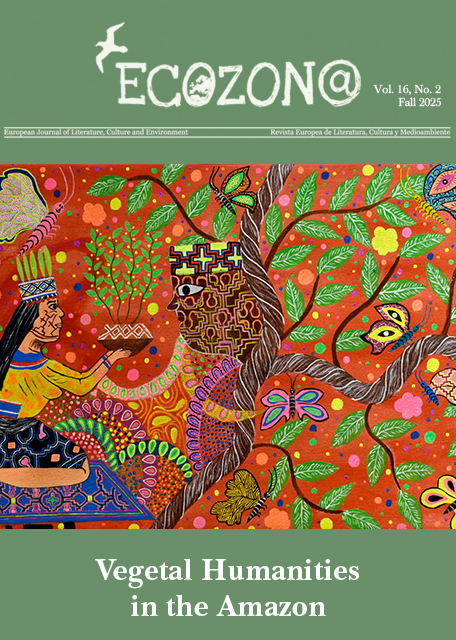<b>Sino-Anglo-Euro Wolf Fan(g)s from Jiang Rong to Annaud</b> // Fans lupinos sino-anglo-europeos de Jiang Ring a Annaud
DOI:
https://doi.org/10.37536/ECOZONA.2016.7.1.980Parole chiave:
Jiang Rong, Wolf Totem, Jean-Jacques Annaud // Jiang Rong, Jean-Jacques AnnaudAbstract
Fans of Jiang Rong’s Wolf Totem could arguably shapeshift into a wolf’s fangs, the sharp tips of China’s Social Darwinism today. Jiang mourns the killing of Mongolian wolves, erecting a literary totem there after wolves are gone. An elegy for the wild comes to justify the growing of fangs amid the jungle of the socialist-capitalist market. Wolf totem becomes a phallic symbol for power. A Sino-Anglo-Euro morphing materializes in global cinema as Annaud transforms the novel into The Last Wolf. Annaud’s romantic film downplays Jiang’s nationalistic tenor, avoiding to bare “red [in] tooth and claw” to the world.
Resumen
Los fans de Wolf Totem de Jiang Rong podrían discutiblemente transformarse en los colmillos de un lobo, las afiladas puntas del darwinismo social en China hoy en día. Jiang lamenta la muerte de los lobos mongoles, erigiendo un tótem literario allí tras la marcha de los lobos. Una elegía a los salvaje llega a justificar el crecimiento de colmillos en medio de la jungla del mercado socialista-capitalista. El tótem del lobo se convierte en un símbolo fálico de poder. Un Changling sino-anglo-europeo de algún tipo se materializa en el cine global cuando Annaud transforma la novela en El último lobo. La romántica película de Annaud resta importancia al tono nacionalista de Jiang, evitando mostrar "rojo [en] diente y garra" al mundo.
Downloads
##submission.downloads##
Pubblicato
Fascicolo
Sezione
Licenza
Authors who publish with this journal agree to the following terms:
a) Authors retain copyright and grant the journal right of first publication with the work simultaneously licensed under a Creative Commons Attribution License that allows others to share the work with an acknowledgement of the work's authorship and initial publication in this journal (CC BY-NC for articles and CC BY-NC-ND for creative work, unless author requests otherwise.
b) Authors are able to enter into separate, additional contractual arrangements for the non-exclusive distribution of the journal's published version of the work (e.g., post it to an institutional repository or publish it in a book), with an acknowledgement of its initial publication in this journal.
c) Authors are permitted and encouraged to post their work online (e.g., in institutional repositories or on their website) prior to and during the submission process, as it can lead to productive exchanges, as well as earlier and greater citation of published work (See The Effect of Open Access).










